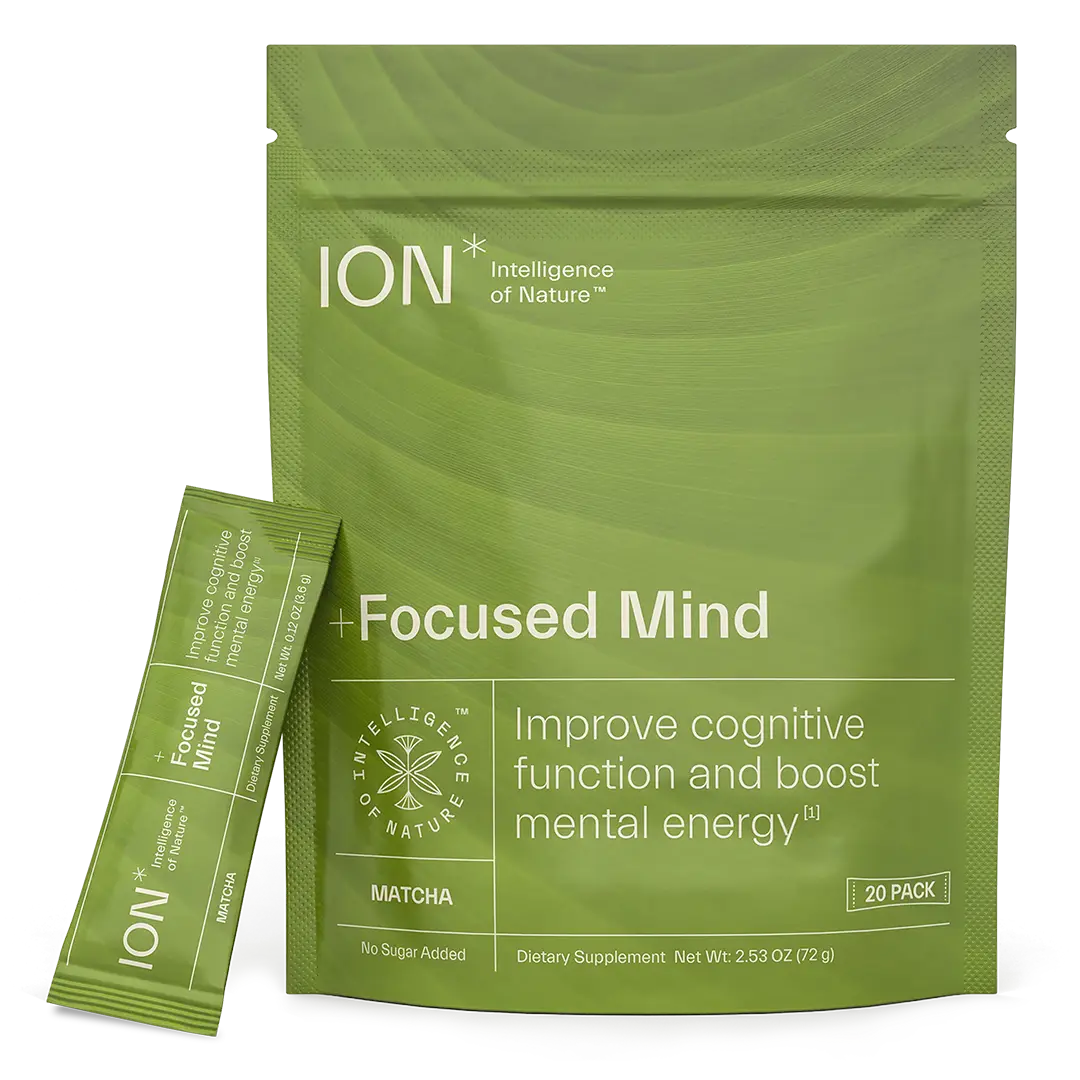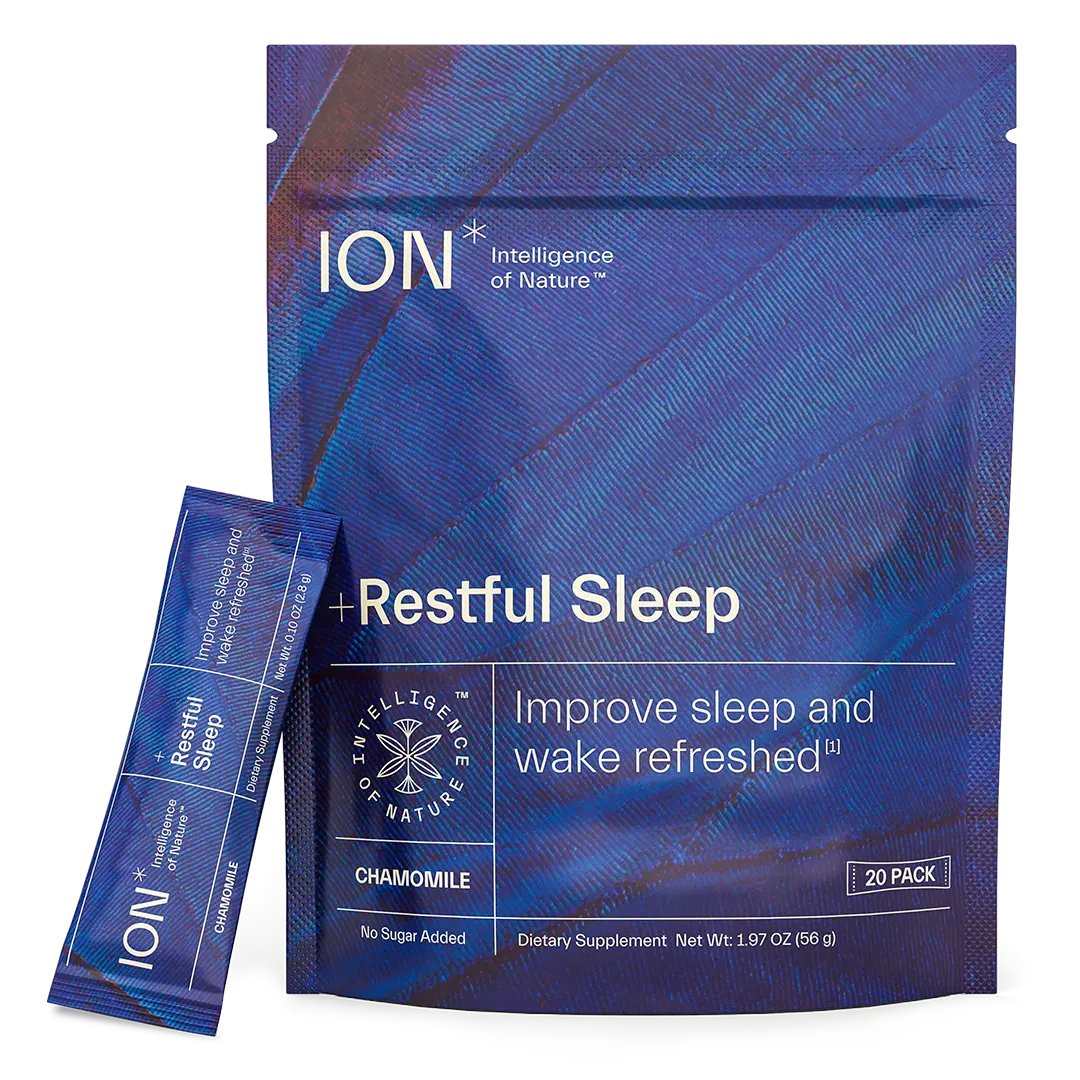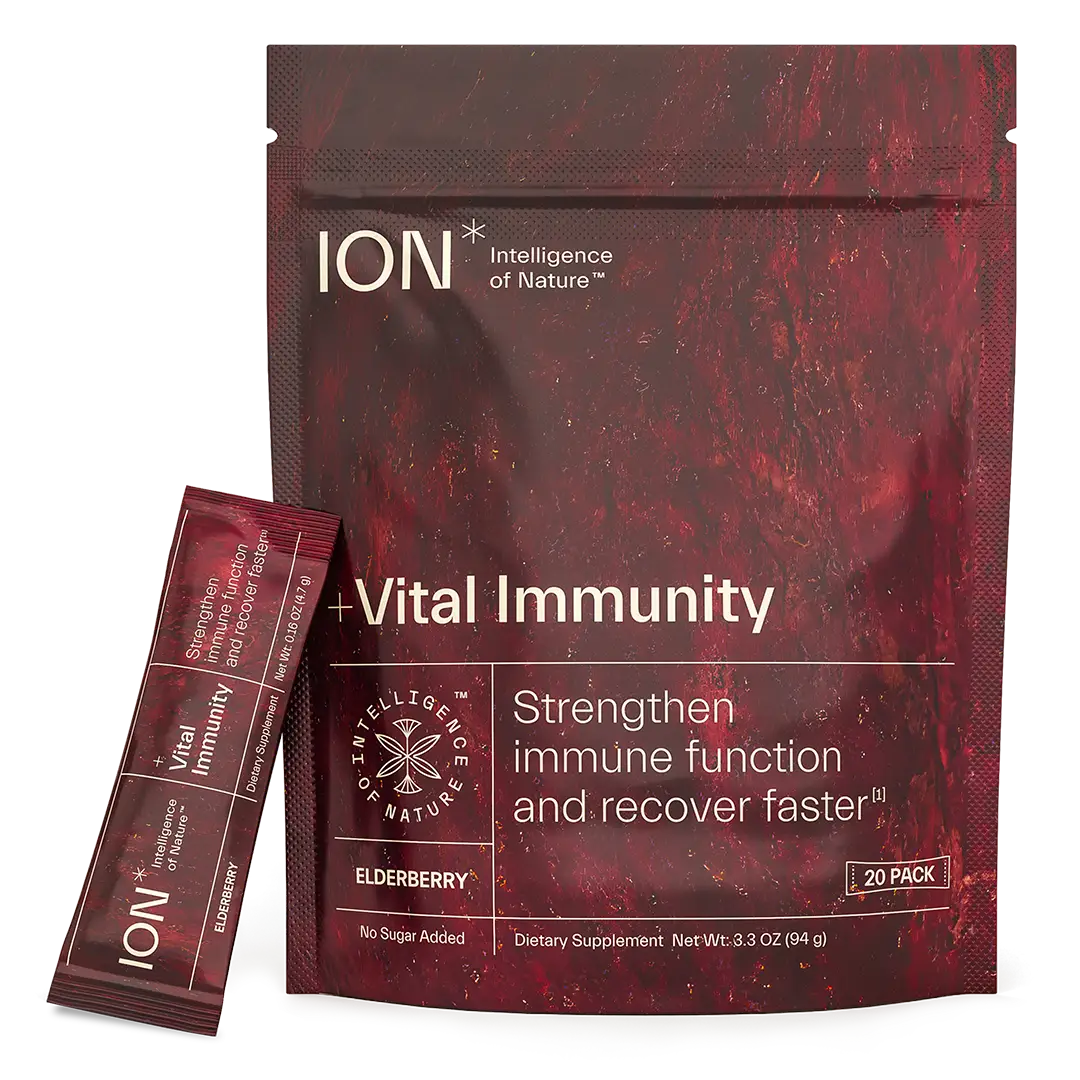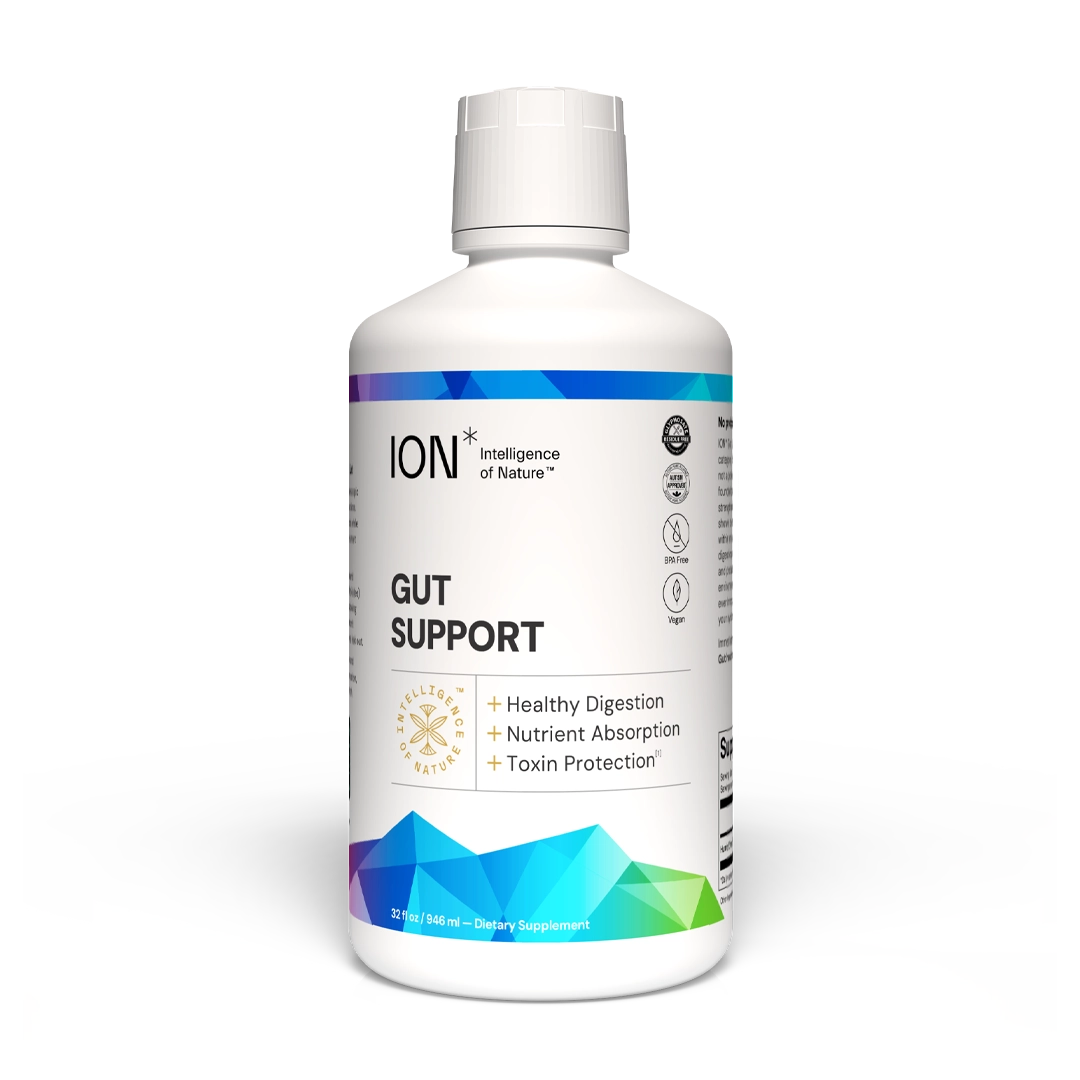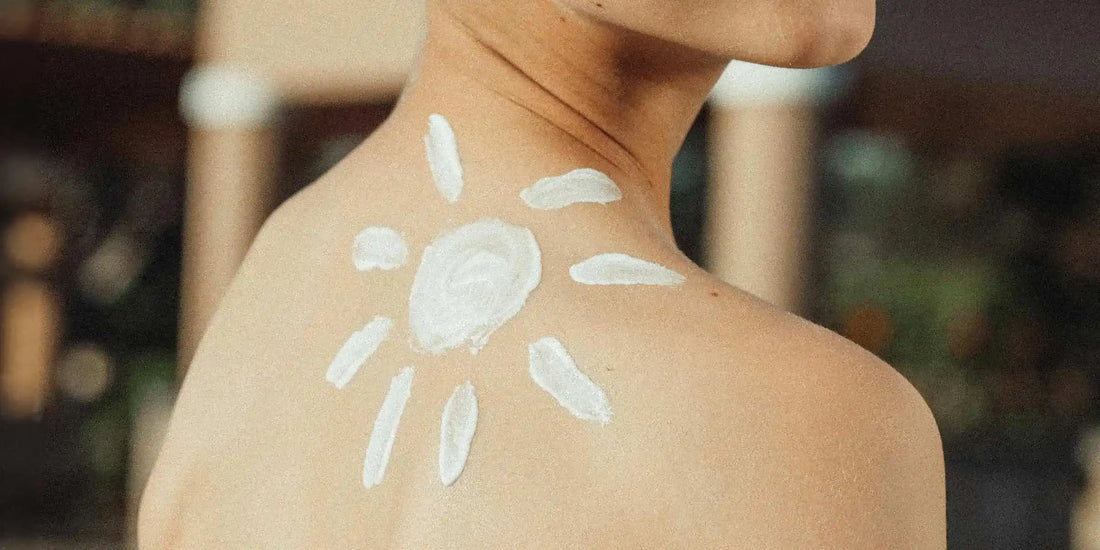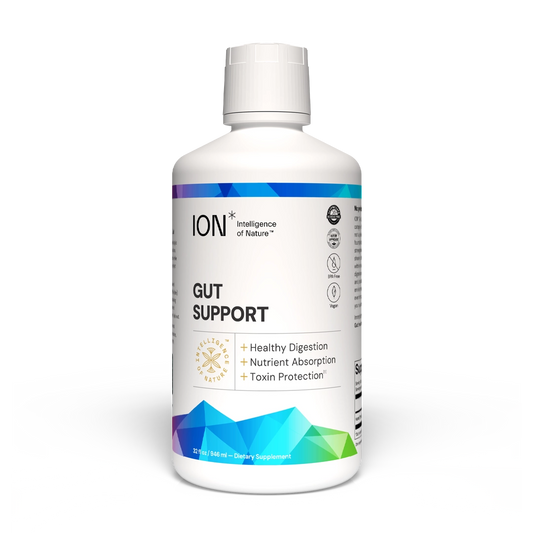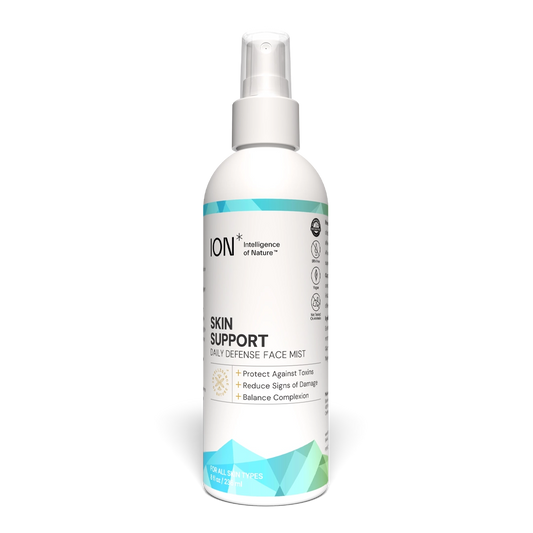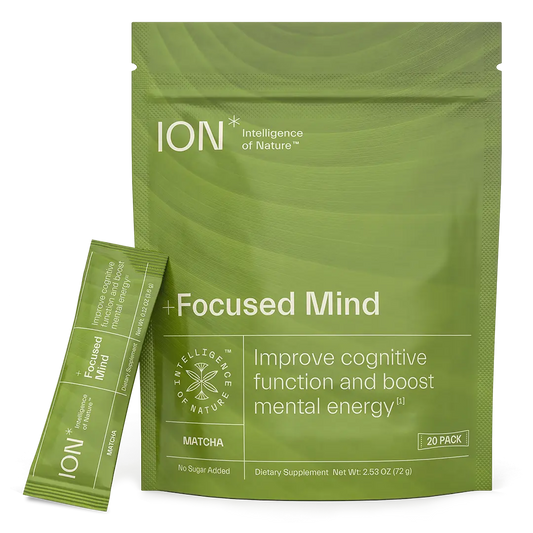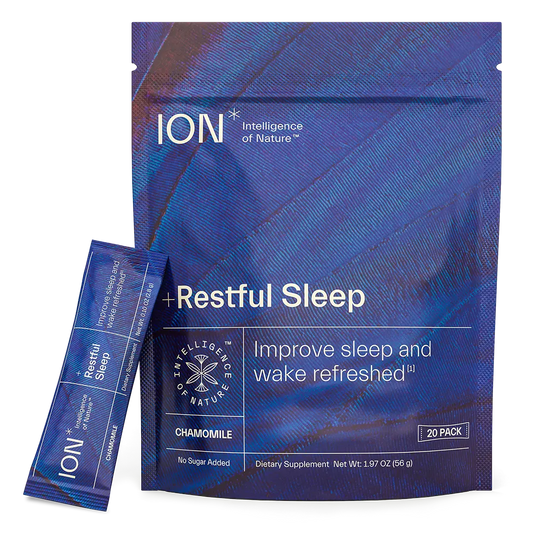Summer is in full swing, and we’re excited to share an easy breezy, skin microbiome-friendly sunscreen recipe you can, literally, whip up at home in minutes. All you need to make this non-toxic and skin nourishing sunscreen is a few simple ingredients, a blender or stand mixer, and a glass storage jar. That’s it! But first, you may be wondering . . . why should I take the time to make sunscreen at home? Well, here are some good reasons:
- You have control over the ingredients so you can choose natural and organic options and avoid potential allergens.
- You can save money since high-quality organic commercial sunscreens can be pricey.
- You can customize your SPF level by adjusting the amount of zinc oxide.
- You can curate your ideal texture and scent using your favorite base oils and essential oils.
Is My Sunscreen Toxic?
“Regular” sunscreens are often loaded with chemical ingredients that may be considered toxic due to their potential human and environmental health impacts. Some key concerns include:
Chemical Ingredients:
- Oxybenzone and Octinoxate: These are common UV-filtering chemicals in sunscreens. They can penetrate the skin and enter the bloodstream, potentially causing hormonal disruptions. Studies have suggested links to conditions such as endometriosis and lower testosterone levels in men.
- Retinyl Palmitate: This form of Vitamin A, when exposed to sunlight, may speed up the development of skin tumors and lesions.
- Fragrances and Preservatives: Some sunscreens contain fragrances and preservatives that can cause allergic reactions or skin irritations.
Endocrine Disruptors:
- Parabens: Used as preservatives, parabens can mimic estrogen and potentially interfere with hormone function.
Environmental Concerns
Coral Reef Damage:
- Oxybenzone and Octinoxate: These chemicals can bleach and kill coral reefs, contributing to the degradation of marine ecosystems. Some places, like Hawaii and Palau, have banned sunscreens containing these ingredients.
Bioaccumulation:
- Chemical ingredients from sunscreens can accumulate in water bodies, affecting marine life. This bioaccumulation can disrupt marine food chains and impact biodiversity.
Non-Toxic Sunscreen Ingredient Alternatives
Yet there’s no need to fear, as this non-toxic sunscreen will help keep your skin gently and naturally protected during the sunny summer months and beyond.
Here are the top benefits of the select ingredients:
Coconut oil is an excellent moisturizer that helps to keep the skin soft and hydrated. Its anti-inflammatory and healing properties soothe irritated and sunburned skin, promoting faster recovery. Rich in antioxidants, coconut oil protects against damage from free radicals, which are increased by sun exposure. Additionally, its natural anti-bacterial properties help prevent infections in damaged skin. While not a substitute for sunscreen, coconut oil provides a mild SPF (Sun Protection Factor) of 4-5, offering some protection against UV rays.
Carrot seed oil has a natural SPF that provides some level of protection against UV rays (35-40), making it a beneficial addition to sunscreens. The oil is rich in antioxidants like beta-carotene, vitamins A and E, which help combat free radicals and reduce signs of aging such as wrinkles and fine lines. It also hydrates and rejuvenates the skin, improving texture, skin tone, and reducing pigmentation and scars. Carrot seed oil's anti-inflammatory and antibacterial properties aid in healing sunburns, wounds, and skin infections, while its detoxifying effects help cleanse the skin of impurities. Additionally, it promotes skin elasticity, making it firmer and more resilient.
Red raspberry seed oil has a natural SPF of 28 to 50, providing substantial UVB and some UVA protection. Rich in antioxidants like vitamin E and polyphenols, it helps combat free radical damage and reduce signs of aging. Its anti-inflammatory properties soothe irritated skin and calm conditions like eczema and psoriasis. The oil is also a superb moisturizer, enhancing skin hydration and barrier function, while its high content of omega-3 and omega-6 fatty acids aids in skin repair and regeneration. Additionally, it is non-comedogenic, making it suitable for all skin types.
Non-nano zinc oxide provides broad-spectrum UV protection, effectively blocking both UVA and UVB rays without penetrating the skin, making it safe for sensitive skin. As a physical sunscreen, it starts working immediately upon application and is less likely to cause irritation compared to chemical sunscreens. Additionally, non-nano zinc oxide has anti-inflammatory properties that can help soothe and protect irritated or acne-prone skin. It's also non-comedogenic, meaning it won't clog pores, and it provides a natural option for those seeking effective and safe sun protection.
Now, on to the recipe:
How to Make Homemade Natural Sunscreen
Ingredients: (makes about 6oz, highly recommend doubling or tripling for ease of making!)
- 1/2 cup Organic virgin coconut oil
- 2 Tbsp Non-nano zinc oxide powder
- 1 Tbsp Red Raspberry seed oil
- 10 drops Carrot seed oil
- Optional: Sweet orange or other non-photosensitive essential oils for scent
Method:
- Whip coconut oil up in a stand mixer (preferred), blender, or food processor.
- Carefully add the zinc oxide (be careful not to inhale it!), red raspberry seed oil, and any essential oils for scent.
- Once the oils and zinc oxide are combined, pour mixture into a small container.
- Cover with sunscreen wax paper or a lid and refrigerate to set (or place in the freezer if you’re in a hurry!).
- Mist on ION* Skin Support, allow to dry, and apply the sunscreen. Put on a hat and some natural fiber clothing and go enjoy the Great Outdoors! *
If you want to dig in more deeply on balancing your relationship with the sun, check out this in-depth Q&A with Dr. Cindy Fallon here.
Important Notes:
- Use Common Sense: Get safe sun exposure and know that the amount will vary from person to person. Do research and connect with your trusted healthcare professional to help figure out what works best for you.
- Patch Test: Always perform a patch test to ensure you don't have any allergic reactions to the ingredients.
- SPF Testing: The SPF level of homemade sunscreens can be hard to determine precisely, so use caution. Since you can’t verify the SPF of homemade sunscreens, the chance of burning is higher. Because this recipe isn’t lab-tested, the exact SPF is unknown.
- Reapply often: Natural sunscreens do need to be applied more frequently and rubbed in more than conventional versions (this recipe is not water or sweat proof). The non-nano zinc oxide can settle to the bottom of the container so be sure to stir well before using.
- Storage: Store in a cool, dark place (or in the fridge) to maintain the efficacy of the ingredients. Coconut oil will become liquid in temperatures above 78 degrees.
- Application Order: Mist ION* Skin Support on your face and body first and allow it to dry or massage it into your skin. Then apply sunscreen and/or any other skin products before and after sun exposure and whenever your skin needs a little refresher or hydration boost.
As mentioned, we suggest using this sunscreen in conjunction with ION* Skin Support for best results, aka that "healthy glow,” all year long. ION* Skin Support is an all-natural daily face mist utilizing our soil-derived humic extract combined with various bio-available minerals including Silicon as Monomethanesilanetriol (MMST), Zinc Gluconate, Copper Gluconate, and Magnesium Citrate. ION* Skin Support is scientifically proven to strengthen your barrier against toxins, balance complexion, and improve hydration.
It is microbiome-friendly, fragrance and dye-free, and designed to support optimal skin barrier function.
Please be aware that ION* Skin Support does not physically block UV rays or chemically alter your response to them and should not be used in place of sunscreen. However, with daily use, ION* Skin Support will help to balance the microbiome which supports healthy lipids (natural oils and waxes), making our skin less vulnerable to damaging rays. It does this by helping to achieve a balanced state of ROS (reactive oxygen species) which means less ROS is acting to damage and kill cells.
Cheers to healthy summer fun in the sun!
* Always check with your doctor or dermatologist before using any new products.
